Roald Dahl hated Jewish people like me – but I don’t want to cancel him
The beloved children’s writer often said Israel was like Nazi Germany. The author of a radical new play explains why now is the right time to examine his racism.

Charmer, narcissist, genius, giant. Inventor, fighter pilot, spy. Despite his many faces, more than 30 years after his death a whiff remains at the centre of Roald Dahl’s legacy – the stink of anti-Semitism.
Now a new play at the Royal Court in London is set to explore his contradictions. Giant by Mark Rosenblatt takes place over the (imagined) course of an absolute trogglehumper of an afternoon in 1983, in which Dahl must decide how to handle the scandal that could sink his career. A book review he has written for a literary magazine, comparing Israel to Nazi Germany and calling all Jews cowards if they don’t condemn the Israeli state, has caused dismay.
The Witches, the novel that could well be his masterpiece, is about to come out and his New York publishers are getting jumpy. Jewish booksellers in the US are already threatening not to stock the new story. The 67-year-old author is under pressure to make a public apology.
Around the table at Gipsy House, Dahl’s home in Great Missenden, Buckinghamshire, fictional crisis talks take place. His friend and publisher Tom Maschler, Jessie, an envoy from the New York sales team (both Jewish) and Dahl’s second wife, Liccy, converge over a deeply uncomfortable lunch of fine wines and Norwegian delicacies, needling and nudging the man worshipped as “the world’s No 1 storyteller” to do what they consider to be the right thing. While Dahl toys with those round him, the audience is left wondering: how deep does the darkness go?
Rosenblatt, a 47-year-old theatre director turned playwright, had been casting around for a way to explore criticism of Israel, racism against Jews and the conflation of the two.
In Dahl’s book review, he tells me, he found the perfect “mirror” to reflect the same arguments that are raging around Israel’s response to the Hamas terrorist attacks of October 7. “I thought, what if our way into this story was through someone that we know and love, and have an affectionate relationship with?”
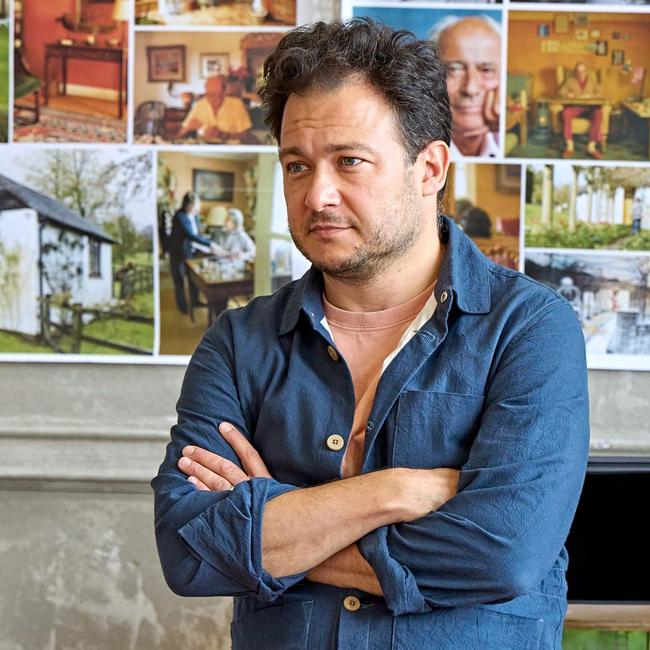
Cruelty, of course, has always been baked into the Dahl brand. Last year Puffin confirmed that it had revised hundreds of words and phrases across many titles, changing “hags” to “crows” in The Witches, replacing Rudyard Kipling with Jane Austen on Matilda’s reading list and making Augustus Gloop merely “enormous” instead of “fat”. Salman Rushdie slammed the changes as “absurd censorship” while others welcomed the updates.
But I can’t be the only Eighties kid who feels strangely protective of the man who lit up my childhood, who made me a reader and whose books remain the only ones I’ve read, on repeat, from beginning to end and straight back to the beginning again. Like all charismatic devils, Dahl made you feel that he was speaking directly, and only, to you.
I remember feeling slightly betrayed to discover that other people knew about Matilda and Sophie and Charlie Bucket too. They were mine! (Except George. His deeply deranged quest to kill his grandma with a fatal mix of household chemicals – she wasn’t even that bad – was always suspect and far from marvellous. No love lost there.)
What his play is not, Rosenblatt insists, is a “hatchet job”. He explains: “It’s limiting to simply put a villain on stage because you’ve got nowhere to go other than to reinforce that. And he was far more than that. He was a very rich, complex, extraordinary, human being who, at base, according to himself, hated people like me.”
First, the context. In 1983 Dahl was recently divorced from the Hollywood actor Patricia Neal and entering a purple patch as a children’s author. (He didn’t start writing for children until his mid-forties, having been preoccupied with previous vocations: working for Shell in Tanzania, serving in the RAF during WWII and seducing the socialite wives of Washington, DC, while spying for MI6.)

He was fiercely pro-Palestinian after his wartime experiences as a pilot based in Haifa, in what was then Palestine. It was perhaps with this in mind that Naim Attallah, the flamboyant Palestinian publisher, commissioned Dahl to write a book review for his magazine Literary Review.
The BFG had been published the previous year – the same year Israel invaded Lebanon and laid siege to Beirut. In February 1983, an official Israeli inquiry concluded that Ariel Sharon, the defence minister at the time, bore “personal responsibility” for failing to prevent the massacre of hundreds, possibly thousands, of innocent civilians at the Sabra and Shatila refugee camps.
Dahl was reviewing God Cried, a photography book about the invasion and its aftermath with a text by the war correspondent and former Sunday Times journalist Tony Clifton. The review began: “In June 1941 I happened to be in, of all places, Palestine, flying with the RAF against the Vichy French and the Nazis. Hitler happened to be in Germany and the gas-chambers were being built and the mass slaughter of the Jews was beginning. Our hearts bled for the Jewish men, women and children, and we hated the Germans.
“Exactly 41 years later, in June 1982, the Israeli forces were streaming northwards out of what used to be Palestine into Lebanon, and the mass slaughter of the inhabitants began. Our hearts bled for the Lebanese and Palestinian men, women and children, and we all started hating the Israelis.
“Never before in the history of man has a race of people switched so rapidly from being much-pitied victims to barbarous murderers. Never before has a race of people generated so much sympathy around the world and then, in the space of a lifetime, succeeded in turning that sympathy into hatred and revulsion. It is as though a group of much-loved nuns in charge of an orphanage had suddenly turned around and started murdering all the children.”
And then, he really gets going, comparing Israel to Nazi Germany – “It is like the good old Hitler and Himmler times all over again” – and calling on all Jews to become “anti-Israeli. But do they have the conscience? And do they, I wonder, have the guts?”
On the one hand, his antipathy was nothing new. Dahl’s biographer Jeremy Treglown records multiple examples of his anti-Semitism before this point, from offensive stereotypes in his unsuccessful first book, The Gremlins, and “jokes” in letters to his mentor Charles Marsh to complaints that his wife’s prospective agent was Jewish and a drunken scene in Curzon House Club in 1979 in which he reportedly claimed there were too many Jews.
But it was Dahl’s remarks after the outcry over his review, when he doubled down, that provide the focus for Rosenblatt’s play. In an interview with The New Statesman he declared that “there’s always a reason why anti-anything crops up anywhere; even a stinker like Hitler didn’t just pick on them for no reason”.
Rosenblatt tells me he resists any “binary judgment”. He explains: “I always took the view that I was never doing this to knock him off his perch. That wasn’t the object of the exercise.” Yes, he says, “Dahl takes pleasure in the language he uses to describe things that feel very hurtful. So, of course, [as a British Jew] I feel like ultimately I may not be the kind of person who would be No.1 on his Christmas card list.”
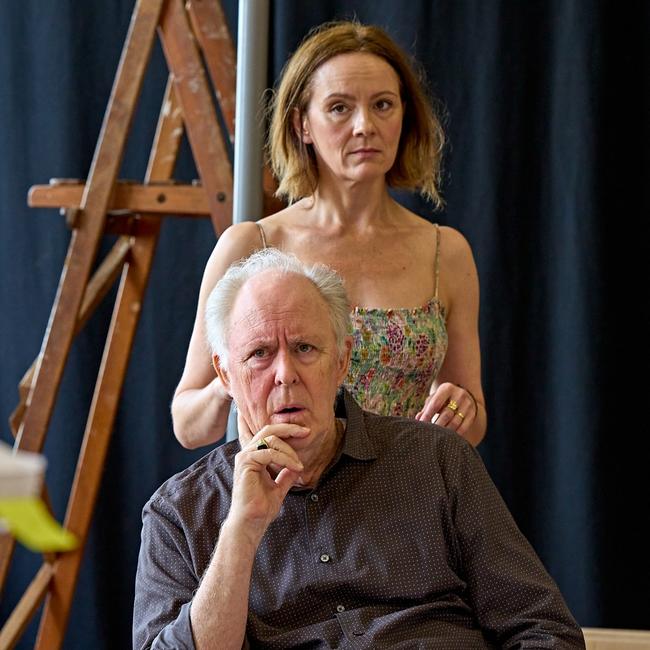
However, he adds, “I figured a hatchet job on him was deeply uninteresting. [Dahl] said, by his own admission, that he was an anti-Semite. That’s a matter of public record, acknowledged by his estate.”
In 2020 the Dahl family issued an apology for the “lasting and understandable hurt” caused by his comments, although it was initially buried on their website.
“So it didn’t seem like a very interesting use of an audience’s time to just double down on that observation because he had already made it about himself,” Rosenblatt says.
“What I wanted to do was write something that was both nuanced and even-handed about the issues around Israel and Palestine, and also about the difference between meaningful discourse around that and anti-Semitic stereotyping.
“Also, just on a human level, [I wanted to] try to find what was incredibly generous and subtle and heartfelt about him as a man – but also where his cruelty lay, and how and why it was difficult for people to operate around him.
“A story around someone’s anti-Semitism is never a good look, but I think, I hope, the play is more than that. When you write someone, you write critically and affectionately because otherwise you can’t bring them to life.”
The American John Lithgow will play Dahl in a production directed by Nicholas Hytner. It is the same theatre that, ironically, made its own apology for perpetuating offensive stereotypes in 2021 after staging a play about a manipulative billionaire called Hershel Fink.
Rosenblatt is not interested in any calls to “cancel” Roald Dahl. “I don’t think he needs to be cancelled and that’s not my intention.”
In his portrayal there are moments of great sensitivity and tenderness, and a nod to the family tragedies Dahl endured. His daughter, Olivia, died of measles when she was seven. His son, Theo, suffered serious brain injury as a baby when a taxi hit his pram, while Neal suffered a series of debilitating aneurisms.
But there are also delicious flashes of Dahl as a diva, grumping about the share of his money that went to his illustrator, Quentin Blake.
“At the moment, there’s quite a lot of binary judgment about people: they’re either this or that and therefore we are going to associate with them or not. I wanted to avoid that,” Rosenblatt says. “For dramatic reasons, you want to keep asking questions of the audience. Where are they with him right now?”
One of the key characters is Maschler, who forged the partnership between Dahl and Blake. Treglown tells me: “There’s a paradox in that, as so often is the case, he was personally friendly with a number of Jews who were, in fact, his publishers, and that was referred to at his funeral by his publisher at Penguin.
“Pretty well everybody who edited him and published him was Jewish, and he was friends with them, until he fell out with them. And he fell out with pretty well all his publishers. But that didn’t seem to affect his general outlook, which was that all Jews were Zionists, and all Zionists wanted to get rid of Palestinians.”
The episode is certainly an interesting case study for PR students. In the pre-internet age, Dahl was able to contain the scandal. The Witches was a hit and people moved on in a way that social media would make impossible now.
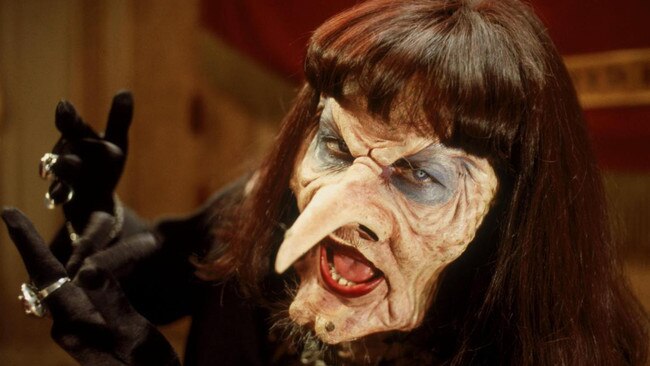
Nor did a lack of contrition during his lifetime – Dahl died in 1990 – stop Netflix from buying the rights to all his work three years ago in a deal rumoured to be worth £500 million ($980m). Among the new projects the streaming company is developing are two animated series by Taika Waititi based on the world of Charlie and the Chocolate Factory.
Had he apologised, would we be talking about his anti-Semitism more or less? “I think it would have softened the feeling towards him,” Rosenblatt says. “Who knows? Maybe it would be something we return to a bit less.”
Does he read Dahl’s stories to his children? Absolutely. “When I read his works to my five-year-old son, I take delight in the joy that he experiences as the Twits turn upside down and squash into their own heads, and the discussions that prompts. ‘Can that actually happen, Daddy?’ What is ‘hug-tight glue’ capable of doing?
“I don’t bring any of this in because I don’t think, fundamentally, those adult views about other adults, spoken outside of his work as a children’s writer, are explicitly, specifically driving the stories. And so they’re separate. People are complicated. We’re all complicated. I’m not forgiving him for what he said, but I have to be able to hold two truths at once.”
Giant opens at the Royal Court, London SW1, on September 20. royalcourttheatre.com
The Times

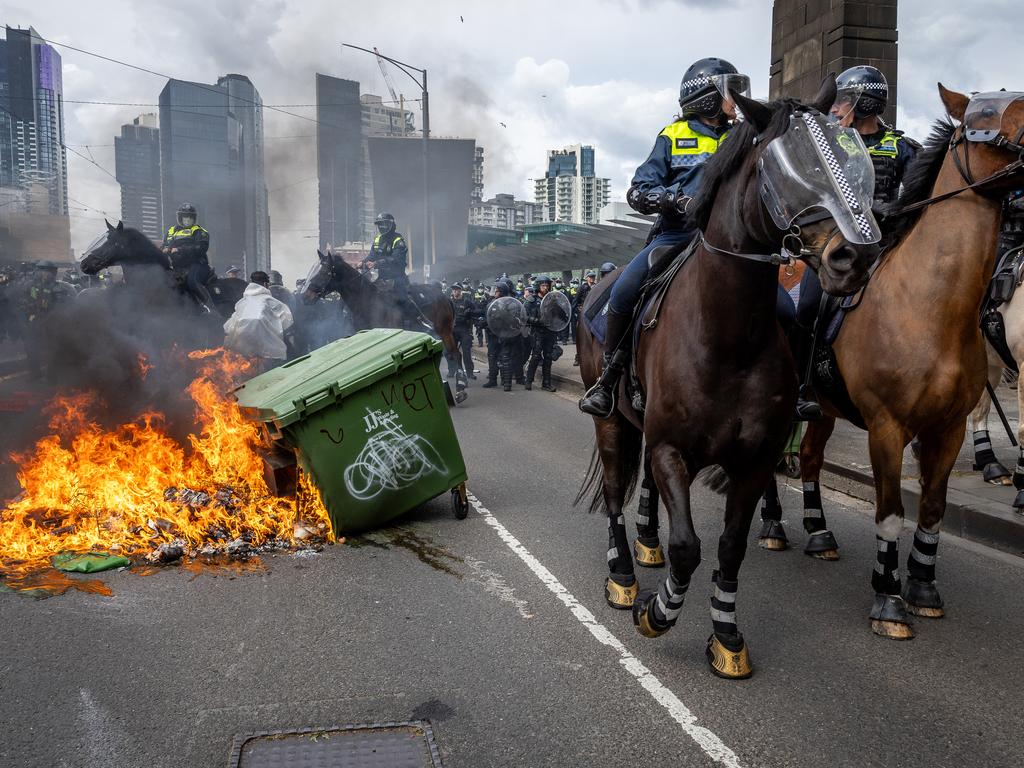
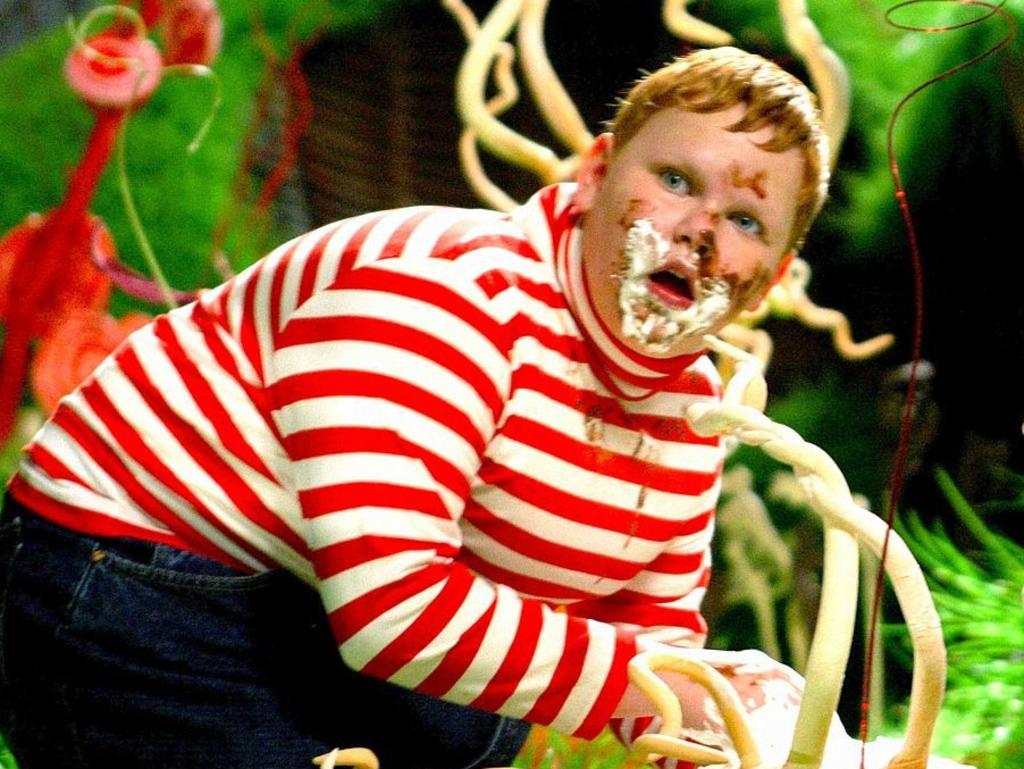
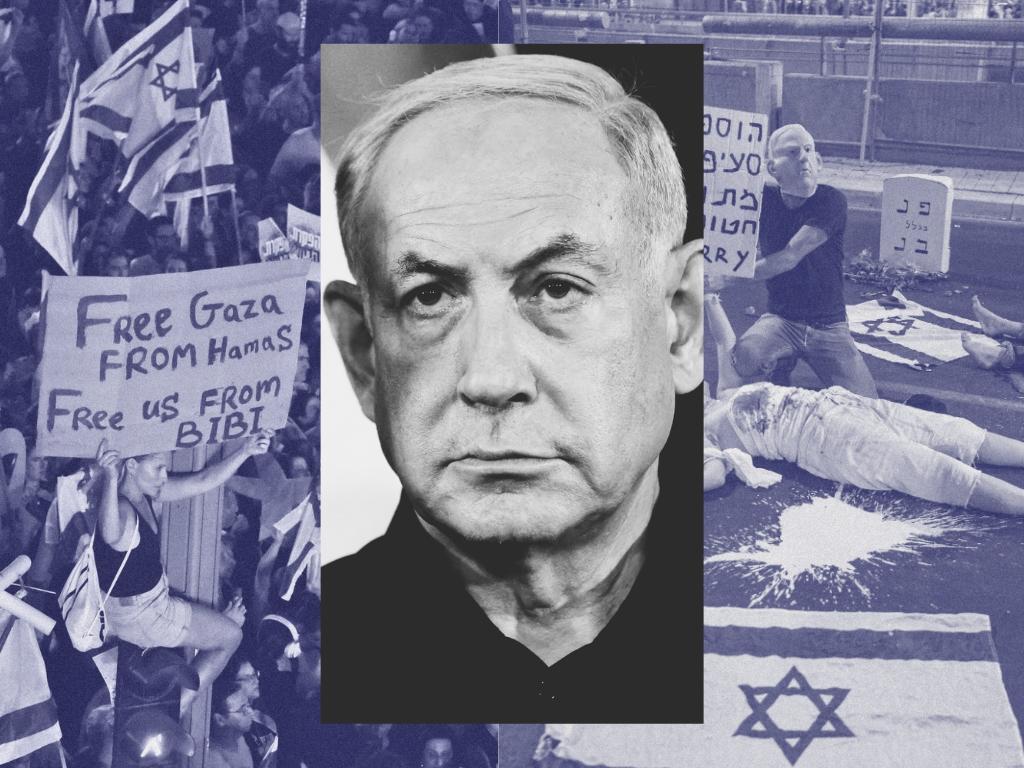
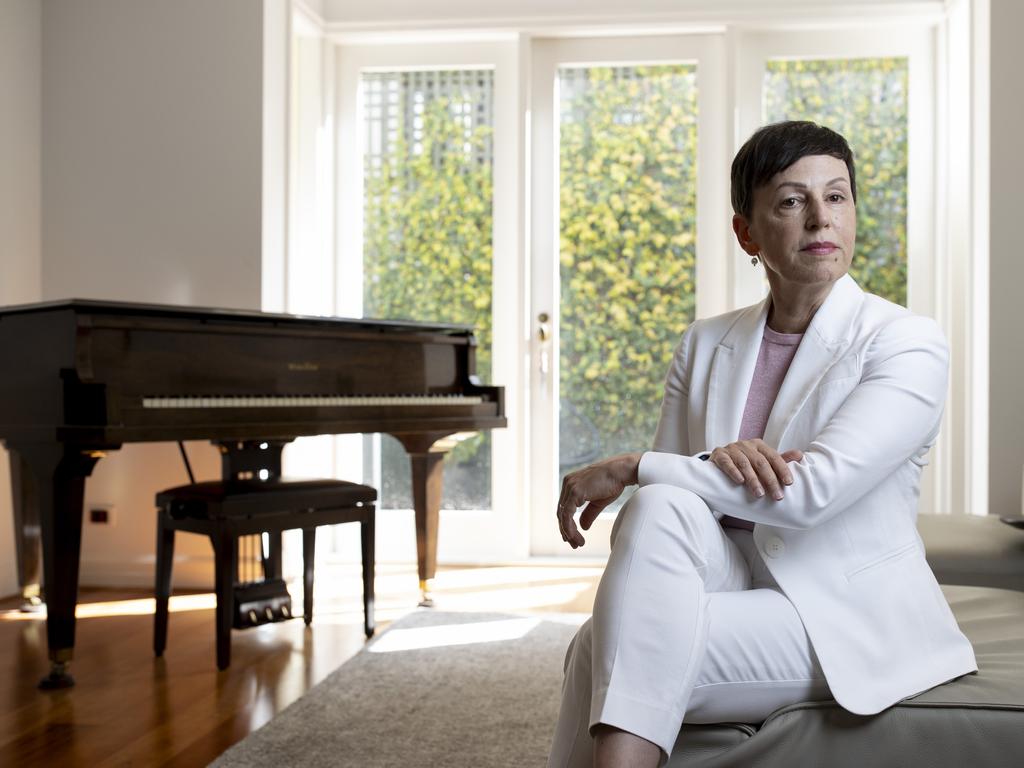


To join the conversation, please log in. Don't have an account? Register
Join the conversation, you are commenting as Logout